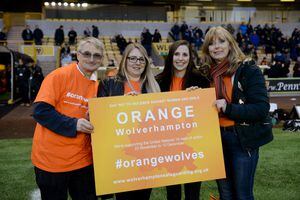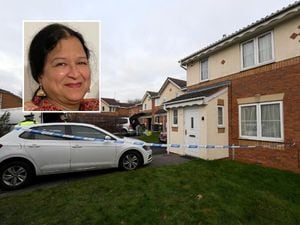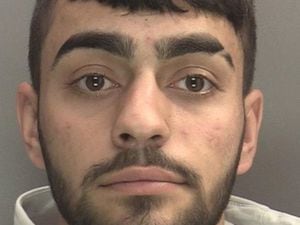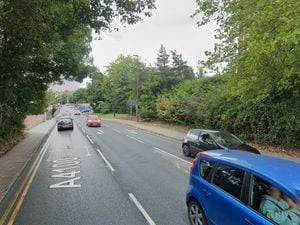Abuse survivors take lead in 'freedom' campaign
"Because he didn't hit me, I didn't think of myself as being abused," says Gemma, a friendly, bright mother-of-three.

It is a statement that is hard to believe having just listened to the harrowing story of the nine years she spent with her manipulative partner.
Gemma and fellow abuse survivor Lucy, who asked us not to use their surnames, spoke to the Express & Star about their personal experiences of domestic abuse as part of a 16-day international campaign to highlight the issue.
Last weekend the two Black Country women took to the pitch at Molineux to promote the cause during the half-time break. Wolves are one of the official backers of the campaign, along with the council, police and the city's college and university.
Gemma was 18 or 19 when she met her partner and thought him 'the best thing since sliced bread'. At the time she had a full-time job as a nursery nurse but that would not last.
Now 31, she says: "He'd meet me from work and take me straight back to his house and I'd end up staying. Within two months I'd moved in. It wasn't a decision, it just happened. I barely saw my family or friends anymore.
"I loved my job but I ended up losing it because he would ring in sick for me without my knowledge. My parents were worried about me. I spoke to them as often as I could but their concerns fell on deaf ears because I couldn't see what was happening."
She describes the life they shared living with his mother as 'awful'. While her partner was at work, Gemma would stay in their bedroom until he returned, too scared to even go downstairs to make a cup of tea because his mother disapproved of her.
"It was very stressful," says Gemma. "I couldn't do what I wanted. We used to go out at first but then he started going out on his own, leaving me at home.
"His mother ended up kicking us out. She just changed the locks one day but she took him back straight away. I went to live with my parents but he would turn up at the house and he was on the phone all the time.
"It took me eight years to to see what was happening and we had three children by then."
Ironically Lucy, 32, was a family support worker, trained to help parents and children with social and personal issues, including women going through exactly the same hell as she herself was experiencing at home.
The crunch came when she had to take part in training for the Freedom programme, a domestic violence initiative to inform service providers who have little or no understanding of such abuse.
She resisted it but was required to take part. "It was my light bulb moment," she says now.
By that time the mother-of-two had been living with her controlling partner for several years. "I felt like I was walking on eggshells constantly. Some days he would be on the phone all the time and sometimes he would ignore me, and that was almost as bad.
"A neighbour phoned the police in the end and from there I contacted social services. I was worried about me and the kids. I realised I had to find support, and that if I didn't, it wasn't going to stop."
Lucy had started the process of finding professional help six months before Gemma so that when a mutual friend put them in touch with each other, she was able to help. "It was like meeting an angel," says Gemma.
Lucy encouraged her to read Living With The Dominator by Pat Craven, the book on which the Freedom programme is based.
"It was like it was written about me – every single word. Realising for the first time what had been going on made me physically ill, I had a full-on migraine for three days," says Gemma. "I had to programme what I'd read for a few days before I could do anything. A couple of weeks later, I moved out."
Both women say they had an inkling that 'something wasn't quite right' but isolated, fearful and lacking in self-esteem, could not take that first step, in their words, to 'freedom'. Both longed for some kind of intervention which would have brought their ordeals to an end sooner.
It is this sort of personal insight that is now helping to inform the Orange Wolverhampton initiative, the city's response to the 16-day United Nations campaign aimed at women and girls which also seeks to highlight female genital mutilation, honour-based violence, forced marriage and sexual violence.
Gail Riggs, of the Wolverhampton Domestic Violence Forum, gave both Gemma and Lucy invaluable support with emotional, housing, legal and parenting issues. Importantly she helped them get non-molestation orders against their partners and to navigate the courts system.
Now settled, they both strongly back training for police, public sector workers and others so that the signs of domestic violence are picked up early. Gemma starts a counselling course in February, while Lucy is in her first year of a social policy degree and wants to work in domestic violence support services.
Lucy says: "It's not easy, it's about being believed, but it's worth it because it empowers you."
For more information about the campaign, go to: www.wolverhamptonsafeguarding.org.uk





